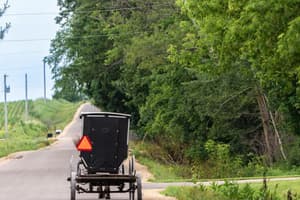Podcast
Questions and Answers
What characterizes the 'slow burn' approach as opposed to rapid growth models?
What characterizes the 'slow burn' approach as opposed to rapid growth models?
- It focuses on immediate results and quick escalation.
- It emphasizes sudden impacts and explosive situations.
- It involves consistent efforts and sustainable practices. (correct)
- It relies solely on high-risk investments for success.
In literature and film, what does 'slow burn' typically refer to?
In literature and film, what does 'slow burn' typically refer to?
- An abrupt change in character relationships.
- A quick resolution to conflicts.
- Immediate action without character depth.
- The gradual development of passionate feelings. (correct)
Which of the following contrasts with the concept of 'gradual impacts'?
Which of the following contrasts with the concept of 'gradual impacts'?
- Deliberate pacing to enhance suspense.
- Quick escalation of conflict or emotion. (correct)
- Slow character development without resolution.
- Sustained tension over a lengthy narrative.
Which element is essential in a 'slow burn' narrative?
Which element is essential in a 'slow burn' narrative?
Which of the following is NOT an example of a 'slow burn' approach?
Which of the following is NOT an example of a 'slow burn' approach?
What characterizes a slow burn in interpersonal relationships?
What characterizes a slow burn in interpersonal relationships?
How does a slow burn manifest in conflicts?
How does a slow burn manifest in conflicts?
What is the defining component of a slow burn?
What is the defining component of a slow burn?
What impact can a slow burn have on mental health?
What impact can a slow burn have on mental health?
In societal trends, how do changes typically develop?
In societal trends, how do changes typically develop?
What can be a challenge associated with a slow burn in relationships?
What can be a challenge associated with a slow burn in relationships?
Which option best describes the slow burn approach in business or financial contexts?
Which option best describes the slow burn approach in business or financial contexts?
What is a common early sign of a slow burn in conflicts?
What is a common early sign of a slow burn in conflicts?
Flashcards
Slow burn
Slow burn
An approach emphasizing sustainable practices, consistent effort, and long-term growth rather than immediate results.
Slow burn strategy
Slow burn strategy
A method that focuses on building a strong foundation over time, gradually generating value or returns.
Slow burn in storytelling
Slow burn in storytelling
A type of narrative development where characters' feelings or plot points unfold slowly, creating suspense and depth.
Slow burn relationships
Slow burn relationships
Signup and view all the flashcards
Slow burn tension
Slow burn tension
Signup and view all the flashcards
What is a slow burn?
What is a slow burn?
Signup and view all the flashcards
Slow burn in conflict
Slow burn in conflict
Signup and view all the flashcards
Slow burn in societal trends
Slow burn in societal trends
Signup and view all the flashcards
Key feature of a slow burn
Key feature of a slow burn
Signup and view all the flashcards
Psychological impact of slow burn
Psychological impact of slow burn
Signup and view all the flashcards
Slow burn in business
Slow burn in business
Signup and view all the flashcards
Potential consequences of a slow burn
Potential consequences of a slow burn
Signup and view all the flashcards
Study Notes
Definition
- Slow burn refers to a gradual increase in intensity or a development of something over time.
- It distinguishes itself from sudden or explosive events.
- This process manifests in various contexts, including interpersonal relationships, conflicts, and even societal trends.
Interpersonal Relationships
- In relationships, a "slow burn" can be characterized by a gradual buildup of feelings, attraction, or conflict.
- It often involves a cautious or tentative approach where initial interactions may appear casual or even neutral.
- However, this initial period hides growing feelings and developing emotional connections that deepen over time.
- This slow process can lead to stronger emotional bonds but also to potential challenges when dealing with incompatibility or unresolved issues.
Conflicts
- In conflicts, a slow burn presents a gradual escalation.
- This can happen when tensions arise in a relationship, dispute, or disagreement.
- Early signs might be subtle and overlooked, such as minor arguments or passive-aggressive behaviors.
- Over time, these tensions build and manifest into more significant and damaging incidents.
- The slow burn approach leads to a cumulative impact of resentment and hostility.
Societal Trends
- Societal trends can develop gradually.
- Cultural shifts or changes in ideologies, norms, or perspectives often don't appear overnight.
- They involve a series of small adjustments and incremental developments over time.
- These changes build up over many years or even decades.
- Examples might include the gradual adoption of new technologies or shifts in attitudes towards social issues.
Gradual Development
- The defining component of a "slow burn" is its incremental nature.
- It contrasts with sudden or explosive developments.
- This gradual nature makes it more subtle and often less easily recognized early on.
- The slow escalation can make it difficult to predict the magnitude of the eventual outcome.
Psychological Aspects
- Slow burn processes can be emotionally taxing.
- The gradual intensity can produce a sense of mounting pressure and anxiety.
- Protracted exposure to subtle but escalating tension can negatively impact mental health.
- The gradual nature can also make it difficult for individuals to recognize and address the problem at earlier stages.
Business/Financial Contexts
- A slow burn can describe a business model or financial strategy that slowly builds value over time.
- It generally contrasts with rapid growth models.
- This approach involves sustainable practices, consistent efforts, and focuses on building a long-term presence or generating returns.
- Examples include long-term investments with gradual returns or developing customer loyalty through consistent quality and service.
Literary/Artistic Contexts
- "Slow burn" is frequently used in literature and film to describe the gradual development of passionate or romantic feelings.
- This dynamic is often used to create suspense and add depth to character development.
- The narrative builds tension slowly, highlighting the escalating emotions over time.
Contrast with other approaches
- Quick escalation vs. slow escalation
- Sudden impacts vs. gradual impacts
- Explosive situations vs. gradual build-up of tension
- Immediate resolution vs. protracted or unsolved issues.
Examples in Popular Culture
- Several novels, films, and television shows make use of the metaphor of a "slow burn" for heightened dramatic effect.
- Examples from different genres could be used to illustrate this stylistic device.
Studying That Suits You
Use AI to generate personalized quizzes and flashcards to suit your learning preferences.
Description
This quiz explores the concept of slow burn, focusing on its gradual intensification in interpersonal relationships and conflicts. You will learn how initial interactions can evolve over time, leading to deeper emotional connections or escalating tensions. Test your understanding of this intriguing process and its implications for human behavior.




